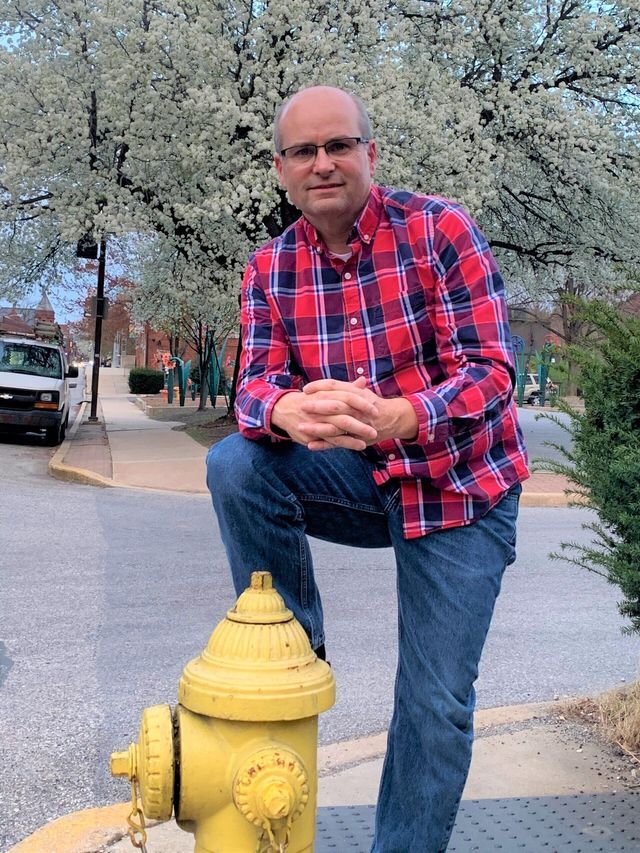Learn more about my book "The Courageous Ask"
Successful Leaders Embrace Their Unique Design
“You are You, now isn’t that pleasant.” That’s a quote from world-renowned philosopher Dr. Seuss.
This is one of the toughest articles in this section of articles concerning the leader's role in preventing a potential fall. It is tough because it will involve taking a courageous look at who the leader is at their core. This is also a topic that is talked about often, but after close examination is typically not aggressively acted upon. So, here we go.
So, who are you? Do you know? Have you really examined this question? People tend to play around on the edge of that question, but few really delve into it, especially with other people. Delving into it might take a person to a place they don’t want to go.
But identifying who we are, to the best of our ability, is a key starting point for executive leadership. And not just who we are as it relates to our position within our organization. We must examine who we are in all areas of life because those areas impact who we are as a leader. This will require us to Courageously Ask difficult questions.
Those areas may include our view of self (especially considering our spiritual view), our view of God, our thoughts on being a spouse and parent, our feelings about things like pride, and our virtues. You may also consider things like political views and your view on social issues. And yes, who you are as a leader. You may even want to consider attributes you are striving for.
(This article is the thirteenth in a series that focuses on starting a conversation centered on preventing the fall of nonprofit leaders. I write it from a Christian perspective, but all leaders will benefit. Be sure to sign up to receive these articles via email every Tuesday at
briankreeger.com.
In addition to receiving these articles two days before they hit social media, you will receive the Introduction and the Appendix (My story) to my upcoming book,
The Courageous Ask: A Proactive Approach to Prevent the Fall of Christian Nonprofit Leaders.)
Let’s take this one step further: Who were you born to be, or who did God make you to be?
The combination of your evaluation of who you are and who you believe God made you to be brings us to a truth that I found concerning nonprofit leaders: the most successful leaders of all those I interviewed found they were able to be themselves, and most comfortably fit into their leadership role.
Two factors often drove this comfort:
1. Their diligent reflection on, and their accurate identification of, who God made them to be.
2. Their ability to make their public/organizational persona consistent with their identity in their private life.
The two points above take us back to integrity and courage, don’t they? We must identify who we honestly are, so that, with integrity, we can hold true to our own self-assessment. We must also have the courage in determining that all the roles in our lives are going to be consistent with who we are, no matter the cost.
Leader, think about
the freedom that conquering these two comforting factors brings. No more conforming to a mold that you think you must fit in. No more manipulating your words. No more playing the stressful games we play as we switch who we are depending on the role we are in. No more scanning a room to make sure your words and actions are in line with who is in the crowd. No more making decisions based solely on what people will think. The list goes on and on.
That list gets rolled up into a ball and thrown in the trash as you transform expectations into one singular role: Being yourself.
Some will say,
“Brian, come on, there is always going to be some level of conforming.” That’s only slightly true, but most leaders take it to an extreme as they work to advance their organizations. And it destroys them and their sense of self.
One thing I have found to be nearly always true is the fact that nothing trumps an executive leader who shows a passion for their organizational mission out of who they naturally are.
We have all met the person with the enormous smile that bends their words and opinions to whatever they see as pleasing to us. The person who is genuine and speaks and acts out of who they are always sticks out in a crowd and are more appealing to most people.
What does this
have to do with a leader being proactive to prevent their possible fall? Glad you asked.
Not performing out of who you truly are and who God made you to be contributes greatly to the loneliness and isolation many fallen leaders have experienced.
Sacrificing who you truly are for short-term successes creates doubt in a leader’s mind and holds them back from making personally honest, confident, and bold decisions. Self-esteem is rocked because you don’t feel you are naturally good enough and need to play the games, always measuring what adjustments need made in order to be pleasing to others for the betterment of the organization.
And when a leader starts to struggle in their position, when their life gets a little cloudy, they cannot remember who they truly are. This is why I strongly recommend that during good times, when a leader can be objective, they write down who they are, based on some of the criteria listed above.
The core of all of this is a leader being honest with themselves; living a life of truth. Without truth concerning who they naturally are, the possibility of a leadership fall increases tremendously.
As was discussed in a previous article concerning human nature, we tend to be our number one fan. We justify our positions and many times change our standards based on current circumstances and emotions. As Andy Stanley says in his book
Better Decisions, Fewer Regrets, “You may not be good at selling anything to anybody else, but when it comes to selling yourself on a bad idea, you are master class.”
Solid self-examination is a must.
The late American psychiatrist M. Scott Peck wrote in his book
The Road Less Traveled, “What does a life of total dedication to truth mean? It means, first of all, a life of continuous and never-ending stringent self-examination. We know the world only through our relationship to it. Therefore, to know the world, we must not only examine it but we must simultaneously examine the examiner.”
Leaders have a skill for determining the causes of problems and finding solutions to those problems- HR problems, funding and financial issues, mission focus, community perception, volunteer recruitment, etc. They are skilled at pushing their organizations toward excellence by continually analyzing and solving problems. They spend their day making judgments and decisions about the life of the organization. But do they expend the same energy making judgments and decisions concerning their own life after careful analysis?
I recognize this
is not easy stuff. I also recognize that this is not the first time you have been confronted with these issues.
It might be time for action. It might be time to bring someone else into your fold to help you with these issues. It might even be time for some major changes....courageous changes.
For me, when I determined who God created me to be, through the help of Bob Buford’s book
Game Plan, I needed to make some life changes. And I did.
Identifying who you were uniquely created to be and working within that giftedness by simply being yourself creates a confidence and boldness in your life that is attractive to all stakeholders in, and out of, your organization.
But very simply- devoid of consistent, true, humble, and complete self-examination, a Christian nonprofit leader cannot be successful in the long term.
This concludes the portion of articles discussing a leader’s role in creating a proactive approach to prevent a potential fall. This was the fourth article along these lines. If you have not read the previous articles, please check them out at
briankreeger.com.
What you have read is certainly not exhaustive and is just a snippet from the upcoming book
The Courageous Ask: A Proactive Approach to Prevent the Fall of Christian Nonprofit Leaders.
Be sure to pick up a copy when it is released in September.
Next Week I will shift gears and begin writing about the role an accountability structure (a Board of Directors) has in preventing the fall of nonprofit leaders.
Be sure to sign up to receive these articles via email every Tuesday at
briankreeger.com. In addition to receiving these articles two days before they hit social media, you will receive the Introduction and the Appendix (My Story) to my upcoming book, The Courageous Ask: A Proactive Approach to Prevent the Fall of Christian Nonprofit Leaders.
Brian@briankreeger.com
#Leadership Fall #Leadership Survival #Nonprofit Relationships #Proactive Approach #Leadership Struggles #Leadership Battles #Christian Executive Leader #Christian Leader #Temptation #Potential Disaster #Self Examination #Being Yourself #Who Are You






